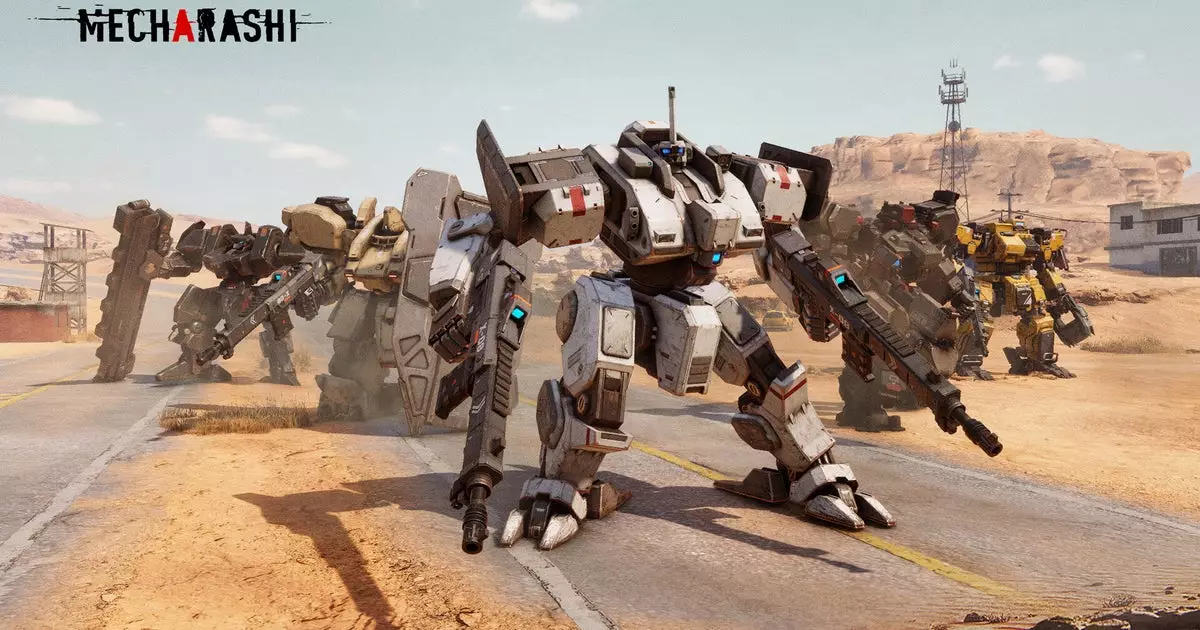The world of gaming is marked by the whims of its creators and the fate that often ties back to financial decisions and market trends. One of the most notable examples in recent history involves the beloved *Front Mission* series, which was shockingly eclipsed by the cancellation of its newest installment, *Front Mission 2089: Borderscape*. Originally slated for mobile platforms in 2022, this project was expected to breathe new life into a franchise that has captivated fans with its strategic depth and mecha-centric storytelling. The abrupt closure of this project, led by BlackJack Studio, left dedicated followers yearning for a continuation of a narrative and gameplay style that has not been seen in a long time.
The Legal Shenanigans that Followed
As if the cancellation wasn’t disappointing enough, Square Enix threw gasoline on the flames by pursuing legal action against BlackJack Studio. The company claimed that the newly launched title, *Mecharashi*—which has similarities to *Front Mission*—utilized components derived from the abandoned Borderscape project. This legal drama not only signals the potential loss of creative endeavors but also raises serious questions about the ownership and reuse of intellectual property within the gaming industry. The lawsuit, which sprawls its allegations across both American and Japanese courts, indicates just how high-stakes this battle has become, with damages speculated to reach $150,000 per infringement.
Mecharashi: A Controversial Success?
Despite its contentious origins, *Mecharashi* has gained traction in specific markets, primarily China and Japan, and even boasts an English version on Steam. The game presents itself as a tactical turn-based experience within a mecha-laden setting. While its description and marketing echo elements familiar to fans of the *Front Mission* series, one must wonder how much of that resonance is merely a reflection of our longing for a sequel, rather than the game’s actual innovation. The parallels drawn between *Mecharashi* and the dearly departed *Borderscape* create a bittersweet scenario; new life is found in the ashes of a canceled project, yet it stirs up feelings of unfulfilled potential and nostalgia for what could have been.
The Aesthetic Shift and Emotional Resonance
Visually, *Mecharashi* shows a softer, more colorful aesthetic compared to its predecessors; a change that reflects contemporary design philosophies but also potentially alienates long-standing fans who have grown accustomed to the grittier, more mechanical designs of the classic *Front Mission* games. These design shifts not only provide a fresh take on a well-loved genre but may also serve as a double-edged sword, exposing the divide between old-school enthusiasts and new players stepping into this mecha universe.
The Future of Tactical Mech Gaming
It’s easy to feel disheartened by the current state of the *Front Mission* franchise. Still, in the chaos of legal battles and project cancellations, there lies a glimmer of hope for tactical mech games. The potential for innovation and the development of new titles, inspired by the legacy of series like *Front Mission*, is still alive. Fans remain vigilant, optimistic that one day the industry will rise to fulfill their desires for strategy-rich gaming experiences that once thrived in the mecha realm. With the right legal resolutions and creative freedom, the future could yet hold exciting advancements for tactical mech gaming enthusiasts everywhere.

